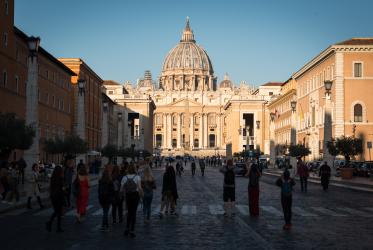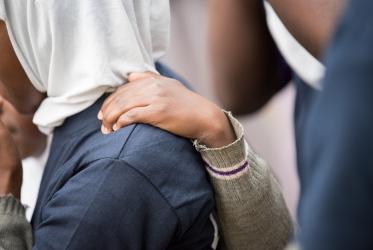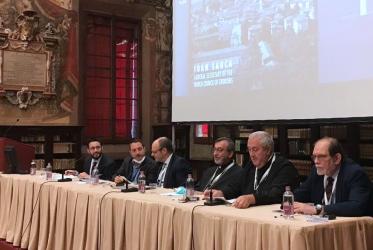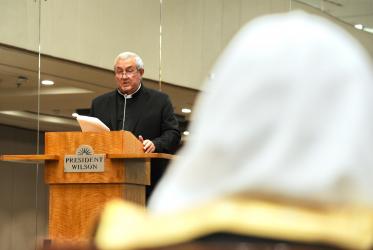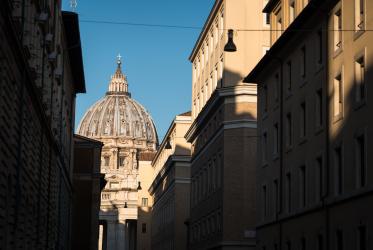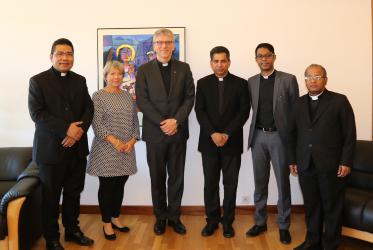Displaying 1 - 18 of 18
Markus Imhoof film receives human rights award
10 October 2019
Tveit: “What does mutual accountability mean?”
15 November 2018
WCC president for Europe: “Develop local dialogue”
22 October 2018
Conference explores Christian approach to borders
05 October 2017
What does ‘prudence’ mean for dialogue and peace-building?
16 November 2016
WCC/UN conference calls for coordinated action on refugee crisis
20 January 2016
WCC urges responsibility for and support to the refugees in Europe
04 September 2015
